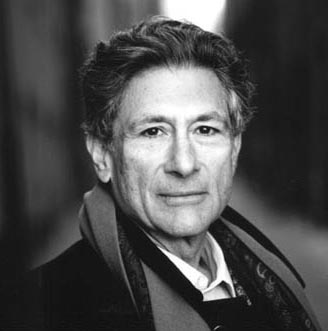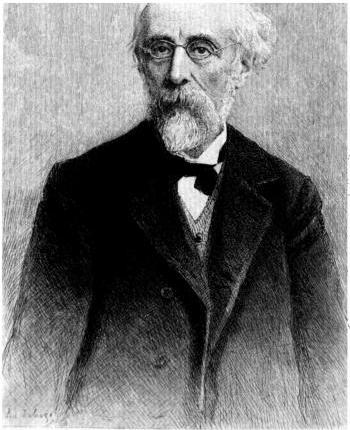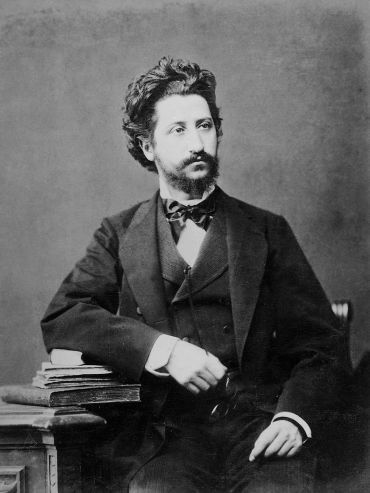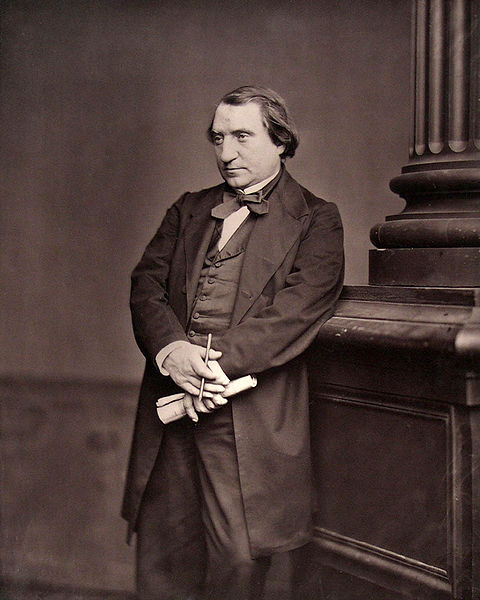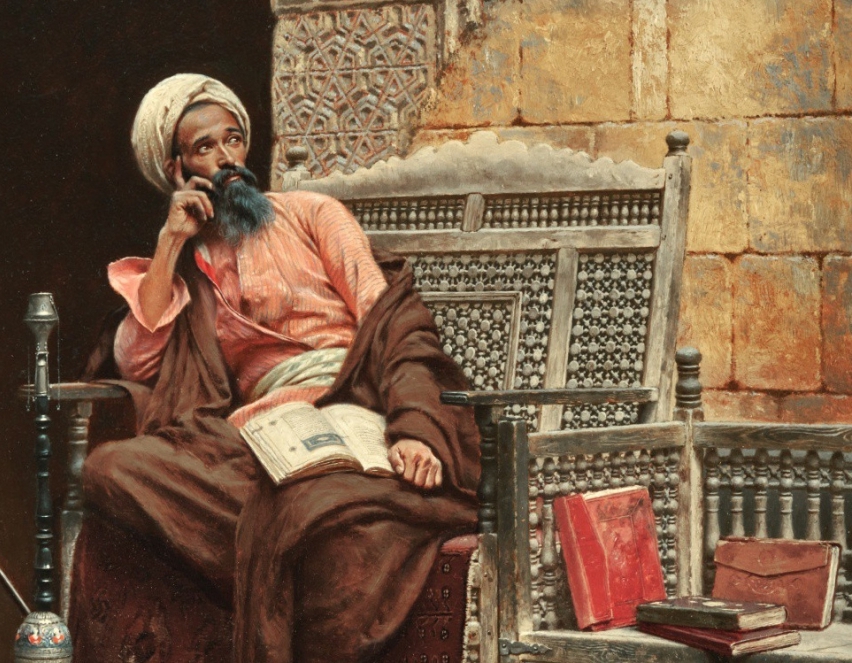
There is no doubt that Orientalism filled a scientific and intellectual void with regard to the study of Islam. It applied the philological and historical method to issues that were rendered off-limits by rigid religious orthodoxies. They were able to present a historical picture of some highly sacralised issues that none had dared touch upon.
BY HASHEM SALEH
THE CONFLICT WITH the Orientalists should be one of methodology or epistemology, in contrast to the conflict waged against them by Arab intellectuals and others, which is a politico-ideological struggle in the first degree.
I am well aware that my position differs greatly from the position of major Arab intellectuals who have waged battles against Orientalism, intellectuals such as Anwar ʽAbd al-Malik, Hishām Jaʽīt and Edward Saïd and many others. There are times where I have got the point of thinking about putting together an entire work on this with the title: In Defence of Orientalism, or In Praise of Orientalism. But until now I have not had the time.
Am I doing this just to be provocative? Of course not. I say this despite the fact that in the field of thought provocation is sometimes a necessary thing for it stirs up stagnant waters and awakens slumbering minds. We Arabs are asleep to history. I would doubtless agree with some of the premises of the above-mentioned intellectuals since Orientalism (particularly in its beginnings) served the process of imperialist infiltration into a territory through a cognitive exploration of the mentality of the Islamic peoples and their social, racial and sectarian conditions. It then offered this collected information to the political authorities so that they could make use of it and decide how to direct their military campaigns or handle the peoples they were about to colonise. Herein lies the close relationship between knowledge and power, as revealed by Michel Foucault and adopted by Edward Saïd in his famous book.
But this is not the sum total of Orientalism in the way that Arab ideologists claim. When I say this I am talking about academic Orientalism, which observes the conditions of scientific research and methodology common to any subject, whether with respect to Islam or Christianity or anything else for that matter. One cannot reduce the function of knowledge simply to pure power relations, as many of our intellectuals do. This is a simplistic understanding of Foucault’s thesis, or even of Edward Saïd’s own thesis. We say this despite the shortcomings of his famous book, given that he was not a specialist in Islamic studies but rather in comparative literary criticism. Towards the end of his life Edward Saïd acknowledged that the desire to understand the ‘other’, so long that this is a sincere effort, constitutes something far removed from any form of hegemonism or enslavement. The desire to understand other cultures, whether this be in order to coexist with them or due to intellectual curiosity or a desire to broaden one’s intellectual horizons, is a praiseworthy and desirable thing.
We Arabs are asleep to history
Unfortunately, Orientalist ideology was not like this. We should here necessarily exclude the works of the great polymath Orientalists that are too many to mention. For these truly wished to understand Islam and were motivated to do so out of sheer intellectual curiosity, something that all of us possess, and for the sake of comparing and understanding their own faith – Christianity. For to understand Christianity one needs to understand Islam, and the opposite is clearly also true. So why do we continue to feel dubious about what is a field of knowledge and consider it to be a symptom of power, domination or hegemony? Are we not, in so doing, dispensing altogether with the act of knowing? And what is this distorted understanding of Foucault’s theory that now prevails among a number of Arab intellectuals? We often hear repeated the common argument that German Orientalism – which is relevant here – did not participate in this preparatory role for colonial hegemony for one simple reason: that Germany had no colonies in the Arab world, in contradistinction to the other great powers such as France and Britain.
But this does not mean that the Orientalism of these colonial nations is entirely invalid and should be thrown into the rubbish bin or into the fires of Hell. All we ask is that, with respect to the Orientalism of these colonial powers, we make a distinction between academic Orientalism at the level we mentioned and the fast-turnover, media Orientalism, or the over-politicised or cheap, opportunistic Orientalism. If we do not make this distinction we do a violence both to truth and to science. Indeed we primarily do wrong to ourselves for Orientalism has no need of us; it is we who have need of Orientalism. Scientific Orientalism exists in all countries whether or not they were once colonial powers.
There is no doubt that Orientalism filled a scientific and intellectual void with regard to the study of Islam. It applied the philological (i.e. Iinguistic) and historical method to issues that were rendered off-limits by rigid religious orthodoxies. The German Orientalist Nöldeke was the first to apply the historical method to the mushaf, that is, to the Qur’ānic text. Goldziher subsequently applied the same method to the books of the hadith of the Prophet. You could say the same thing for the Orientalist scholar Joseph Schacht who made a study of the social and political conditions (or circumstances) surrounding the elaboration of the Sharīʻa or of Islamic jurisprudence.[1] With these works we were able to get an alternative view of our jurisprudential tradition than the one prevailing among the generality of Muslims. They were able to present a historical picture – a positivist realistic one – of some highly sacralised issues that none had dared touch upon or even approach. And it is for this reason that their researches provoked angry reactions amongst conservative Muslims who held these studies to be an attack on Islam, or even an attempt to destroy it!
Note the extent of the level of ignorance, as if knowledge was something that destroys rather than builds … But the fact is that their reaction differed in no wise from the reaction of traditionalist Christians in Europe itself. For these also protested violently at the first attempt made by historians and scholars to study the Gospel and the Christian heritage in a scientific, historical and philological way.[2] So all the Orientalists were doing was to apply to the Islamic heritage the same methodology that they had applied previously to the Christian heritage and which had stirred up such a raging storm of criticism among the Christian faithful – in the traditional sense of the word ‘faith’, of course.
One cannot reduce the function of knowledge simply to pure power relations
For example, look at what happened to Ernest Renan in France after he brought out his famous book on the life of Jesus.[3] The world was turned upside down and the fundamentalists issued personal threats against him, and for a time prevented him from continuing his university studies. He took fright and lay low for some time, just as his great predecessor Voltaire once had to do. For the fact is that the ‘faith consciousness’ on both sides, Islamic and Christian, cannot bear the results of the historical approach which ruptures the idealised image of their sacred heritage that has been embedded for centuries in the minds of believers. I say ‘faith consciousness’ in quotation marks, since there is a difference between traditionalist faith and modern faith; the former believes through a process of submission, the latter through employing the intellect. There is a huge gap between the two.
Indeed, the application of the historical method to sacred texts and to the persons of the Prophets shocked the traditionalist faithful to the core. You may think of this as a perilous surgical operation or a severe internal bleeding, things which inevitably occur whenever one applies the historical method to the study of the Islamic religious heritage. Pressures in Europe were unable to accommodate this process or swallow it, so to speak, before waging fierce battles, before severe pains were suffered and a massive internal struggle took place. This process of accommodation took them all this time – from the era of Spinoza and the Enlightenment right up to the beginnings of the 20th century; that is, a period spanning two and a half, or even three centuries. How long, then, do you think it will take us Muslims? Some say until the end of the 21st-century, since the problem of Salafist fundamentalist Islam with modernity is now at its most intense. It will consequently not be over until the end of this century, and in the process it will crush several generations in its path before finding a solution.
Later, in the footsteps of their forerunners, there followed a second generation of Orientalists employing the same exploratory operation on the Islamic legacy. The Orientalists Brunschvig and Juynboll carried out important researches on the actual, historical formation of the Prophet’s hadith.[4] It confirmed the validity of some of the results which the earlier Orientalists had hinted at or arrived at. They made a thorough sifting out of the hadith until, in the end, very few of them were left. As for the biography (sīra) of the Prophet, and the presentation of a historical picture of him, there have been a number of books in the foundational languages of Orientalism – English, French, German and so on. It is clear that they tried to present – for the first time – a historical portrait of the person of the Prophet Muhammad. This of course is a very important issue, but they succumbed to a form of extremism that matched the extremism of the traditionalist Muslims. For as much as the Muslims ignored historical truths and presented a reverential, unhistorical, or even inflated legendary portrait of the personality of the Prophet, so the Orientalists presented a thoroughly historical, positivist and entirely de-sanctified portrait of one of the greatest personalities in human history.
We make a distinction between academic Orientalism and media, or opportunistic Orientalism
We should mention here the book by Blachère entitled The Problem of Muhammad[5] in which he highlights the tendencies towards veneration in the sīras of Ibn Ishāq and Ibn Hishām. These works are undoubtedly of great use in themselves, but they are not up to the methodological standards of modern historiography. We should also mention the famous book which was banned a few years ago in Cairo and which caused a sensation and stirred up a violent reaction on the part of fundamentalist Egyptians and Arabs in general. I am referring here to the book Muhammad by Maxime Rodinson.[6] The author somewhat overdid it when he talked of a ‘Prophet in arms’ and brought up issues of deep psychological crises in his personality. Did Rodinson think that prophets could possibly be normal personalities like the rest of humanity? Strange indeed, but this should not surprise us since this was the viewpoint of a purely positivist, materialist thinker, a viewpoint that could not possibly grasp the internal psychology of great geniuses. For the Prophet is one of those rare religious geniuses that have appeared over history. Consequently his psychological make-up could not be one that was in common with the rest of humanity. This of course does not mean that one should reject the importance of Rodinson’s book as an accurate sociological and historical study of the environment in which Islam emerged.
But in contrast to these overblown materialist interpretations which the Marxist atheist Rodinson succumbed into, and which are incapable of understanding the spiritual depths of the personality of the Prophet of Islam, we also find other Orientalists who present a more representative portrait of the Prophet, one might say one that is more descriptive, more neutral and measured and yet at the same time more understanding of the spiritual side of the great Prophet. These Orientalists preferred to concentrate on depicting the social and political conditions that were prevailing in Mecca and the Arabian Peninsula at the time of the appearance of the Prophet or shortly beforehand. Among these we may mention the famous English Orientalist Montgomery Watt and his two important and celebrated works: Muhammad at Mecca and Muhammad at Medina.
In general the Orientalists biased towards a positivist methodology were intending to present an image of ‘Muhammad’ that was entirely in contrast with the image presented of Jesus Christ. Where Christ was characterised by his chastity and distance from sexual pleasures, the Prophet of Islam, in their depiction of him, was a sensuous person in love with women and had many wives. Where Christ was pacific, and said that “whosoever shall smite thee on thy right cheek, turn to him the other also”, ‘Muhammad’ was a warrior who engaged in battles and raids. Where Christ was a spiritual person turning his back on the life of this world, saying “my Kingdom is not of this world”, the Prophet was political to the first degree. This is how they began to present a reductionist, incomplete portrait that neglected the lofty spiritual dimensions that characterised the Prophet of Islam. Perhaps in this way they were settling some old scores with Islam and its Prophet, scores which dated back to the Middle Ages.
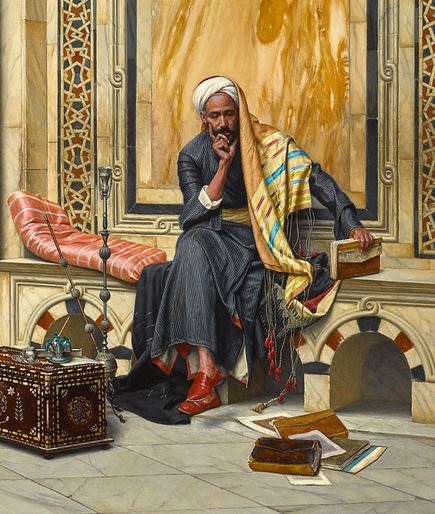
Suggested Reading
Orientalism and the historicization of the Islamic heritage – 2
From this perspective we ought to criticise Orientalism and be alert to its shortcomings. But whatever the case may be, the portrait of the Prophet or his sīra that needs to be rewritten, according to the opinion of some major specialists in the field. The process should maintain an equilibrium between spiritual and material aspects and should apply the latest modern historiographical method to the personality of the Prophet, to his time and his environment, so that a balanced picture of his life may emerge. That is, the process should not boil down to a one-dimensional portrait designed for some ulterior purpose. Such a methodology exists and is termed ‘historical psychology.’ It has been elaborated by the major figures of the French École des Annales such as Lucien Febvre, Georges Duby and Jacques LeGoff. These are interested in studying the origins of the religious imagination and the workings of this imagination in a specific period or environment.
Therein lies the fundamental difference between the methodology of modern historiography and the positivist methodology followed by most Orientalists. The conflict with the Orientalists should consequently be one of methodology or epistemology, in contrast to the conflict waged against them by Arab intellectuals and others, which is a politico-ideological struggle in the first degree. Our struggle with Orientalism is therefore something that goes in deep and not something that is superficial.
[1] See the following references to these Orientalist scholars: Nöldeke, Histoire du Coran. Paris.1859 ; Goldziher, Le dogme et la Loi de l’islam. Paris.1920 ; Joseph Schacht, Introduction au droit musulman. Paris.1999.
[2] Spinoza (1632-1677) received death threats for this and was in fact the object of a failed assassination attempt for having made a historico-philosophical study of the tenets of Judaism. Richard Simon (1638-1712) burnt his own manuscripts when he feared he was about to be arrested and caught with them red-handed. He is well known for having been the first one to apply the historical method to the holy texts following Spinoza of. He wrote a book called a critical history of the Old Testament, followed by a critical history of the New Testament. On this, see Richard Simon, Histoire Critique du Vieux Testament, Paris 1680 and Histoire Critique du Texte du Nouveau Testament, Rotterdam 1689.
[3] Renan, Vie de Jesus, Paris 1863. Do you know why they put a stop to Renan’s lectures in the College de France? Because he expressed himself thus: ‘Jesus was a man who was unmatched’. Despite his strong praise of Jesus and his considering him the noblest person to appear upon the face of the earth, they stirred up against him and threatened him. Why? Because they consider him to be a man and not Godas the theology demands. He had cast doubt upon a basic, central tenet of Christianity as a result of his absorption of modern scientific and historical research.
[4] Robert Brunschvig, Etudes d’islamologie, Paris 1976 ; G.H.A. Juynboll, Muslim Tradition, Cambridge. This is an important reference work dedicated to the study of the Prophet’s hadith in its earliest phases, from the purely historical point of view, naturally.
[5] Regis Blachère, Le problème de Mahomet. Essai de biographie critique du fondateur de l’islam. Paris 1952.
[6] Maxime Rodinson, Mahomet, Paris 1961. The events surrounding this book are highly interesting and illustrative of the problem the author is highlighting. See S. Ulph, The American University in Cairo and the Maxime Rodinson Affair. (Ed.)
